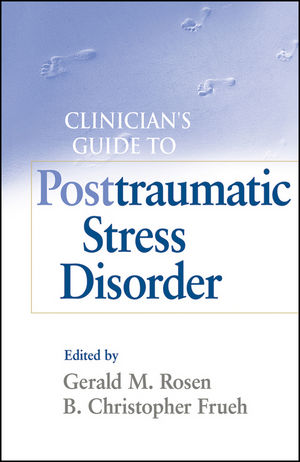Clinician's Guide to Posttraumatic Stress DisorderISBN: 978-0-470-45095-6
Hardcover
320 pages
July 2010
 |
||||||
"Contributors to this impressive collection include Robert Spitzer, one of the architects of DSM-III, and Jerome C. Wakefield and Allan V. Horwitz, authors of The Loss of Sadness: How Psychiatry Transformed Normal Sorrow into Depressive Disorder (Oxford University Press, 2007).... It is ironic that research spurred by the introduction of posttraumatic stress disorder (PTSD) has come to challenge almost every aspect of the construct's originating assumptions. These issues are carefully discussed: the idea of a specific aetiology; the distinctiveness of the supposed core symptoms; the loosening of the stressor criterion, which editor Gerald Rosen calls 'criterion creep'.... Without a coherent position on the question of specific aetiology, the validity of PTSD rests largely on the distinctiveness of its clinical syndrome, yet its features overlap substantially with other psychiatric categories.... This book interrogates the construction of PTSD and can serve as a case example of the way to critique the construction of psychiatric knowledge across the whole field." (Derek Summerfield, The British Journal of Psychiatry, 2011, 199:347)
"Since its inception in 1980, research and theory on PTSD have
grown exponentially. Making sense of the burgeoning and often
contradictory findings is no small feat, especially in the context
of a demanding clinical schedule. Rosen and Frueh's important book
takes a huge leap toward clarity. The chapters are authored by
leading experts in the field and each address one of the pressing
issues of the day. The tone is sensible and authoritative
throughout, but always with a thoughtful ear toward clinical
concerns and implications. The scope and clarity of the writing
alone make this an invaluable resource."
—George A. Bonanno, Ph.D., Professor of Clinical Psychology, Department of Counseling and Clinical Psychology Teachers College, Columbia University
—George A. Bonanno, Ph.D., Professor of Clinical Psychology, Department of Counseling and Clinical Psychology Teachers College, Columbia University



